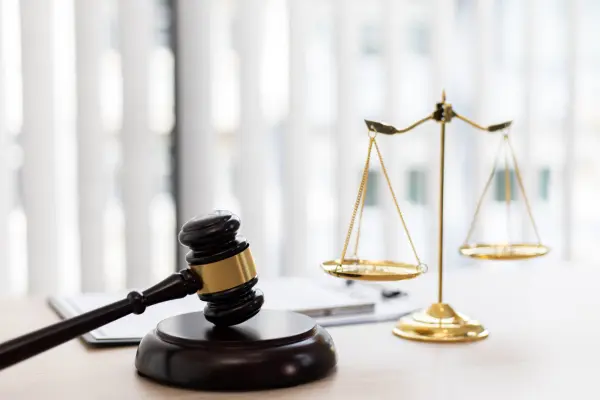How to Choose the Right Attorney: 7 Essential Factors to Consider

Choosing the right attorney is a critical decision that can significantly impact the outcome of your legal matter. Whether you’re dealing with a personal injury case, a family law issue, or a business dispute, finding the right legal representation is essential. This article outlines seven key factors to consider when selecting an attorney, ensuring you make an informed choice that aligns with your needs.
-
Area of Expertise
Specialization Matters
The legal field is vast, with attorneys specializing in various areas such as criminal law, family law, personal injury, corporate law, and more. It’s crucial to choose an attorney who specializes in the area relevant to your case. For example, if you’re going through a divorce, a family law attorney would be more suitable than a general practitioner. Specialization ensures that the attorney has in-depth knowledge and experience in handling cases similar to yours.
Experience in Similar Cases
Beyond specialization, consider the attorney’s experience with cases similar to yours. An attorney with a strong track record in handling cases like yours is more likely to achieve a favorable outcome. Ask potential attorneys about their experience with cases that share the same legal issues or complexities as your own.
-
Reputation and Reviews
Researching the Attorney’s Reputation
An attorney’s reputation is a strong indicator of their professionalism and effectiveness. Look for reviews and testimonials from previous clients to gauge their satisfaction with the attorney’s services. Online platforms, such as Avvo, Martindale-Hubbell, and Google Reviews, can provide valuable insights into an attorney’s reputation.
Peer Recognition
In addition to client reviews, consider whether the attorney has received recognition from their peers. Awards, professional memberships, and ratings from legal associations can be indicators of an attorney’s standing in the legal community. Peer recognition often reflects an attorney’s expertise, ethics, and professionalism.
-
Communication Skills
Importance of Clear Communication
Effective communication is crucial in any attorney-client relationship. Your attorney should be able to explain complex legal concepts in a way that you can understand. During your initial consultation, pay attention to how the attorney communicates. Are they listening to your concerns? Do they explain your legal options clearly? Good communication ensures that you stay informed and can make well-informed decisions throughout your case.
Availability and Responsiveness
Communication also extends to the attorney’s availability and responsiveness. A good attorney should be accessible and willing to answer your questions in a timely manner. Consider how quickly they respond to your inquiries and whether they make themselves available for meetings or calls when necessary.

-
Fees and Billing Structure
Understanding the Cost
Legal fees can vary widely depending on the complexity of your case, the attorney’s experience, and their billing structure. Before hiring an attorney, make sure you understand their fee arrangement. Some attorneys charge by the hour, while others work on a contingency fee basis, particularly in personal injury cases. A contingency fee means the attorney only gets paid if you win your case.
Transparency in Billing
Transparency in billing is essential to avoid unexpected costs. Ask the attorney for a detailed explanation of their fees, including any additional costs for services like filing fees, expert witnesses, or administrative expenses. A clear understanding of the billing structure will help you budget for your legal expenses.
-
Compatibility and Trust
Building a Trusting Relationship
Your attorney will be your advocate, so it’s important to choose someone you feel comfortable with and can trust. During your initial meetings, consider whether the attorney is someone you can confide in and rely on. Trust is the foundation of a successful attorney-client relationship, and your comfort level with the attorney can impact the effectiveness of your collaboration.
Assessing Compatibility
Compatibility goes beyond trust; it also involves assessing whether the attorney’s working style aligns with your expectations. Some clients prefer a more hands-on approach, while others want the attorney to handle everything independently. Make sure your attorney’s approach matches your preferences to avoid potential conflicts or misunderstandings.
-
Location and Accessibility
Convenience of Location
The attorney’s office location can be an important factor, especially if your case requires frequent in-person meetings. Choosing an attorney who is conveniently located can save you time and travel expenses. Additionally, local attorneys are often more familiar with the local court system and its procedures, which can be advantageous for your case.
Virtual Consultations
In today’s digital age, many attorneys offer virtual consultations and meetings. If location is a concern, ask whether the attorney can accommodate remote communication. This flexibility can be particularly useful if you have a busy schedule or if the attorney’s expertise outweighs the need for proximity.
-
Personal Referrals
Seeking Recommendations
Personal referrals from friends, family, or colleagues can be valuable when choosing an attorney. People you trust can provide honest feedback about their experiences with a particular attorney. Personal referrals can also help you narrow down your options and identify attorneys who have a proven track record of success.
Evaluating Referrals
While referrals are helpful, it’s important to evaluate the recommended attorney based on your specific needs. What worked for someone else may not necessarily be the best fit for your case. Use referrals as a starting point, but conduct your own research to ensure the attorney meets your criteria.
Conclusion
Choosing the right attorney requires careful consideration of various factors, from their area of expertise and reputation to communication skills and fee structure. By taking the time to evaluate these essential factors, you can find an attorney who is well-equipped to handle your legal needs and achieve the best possible outcome for your case.



